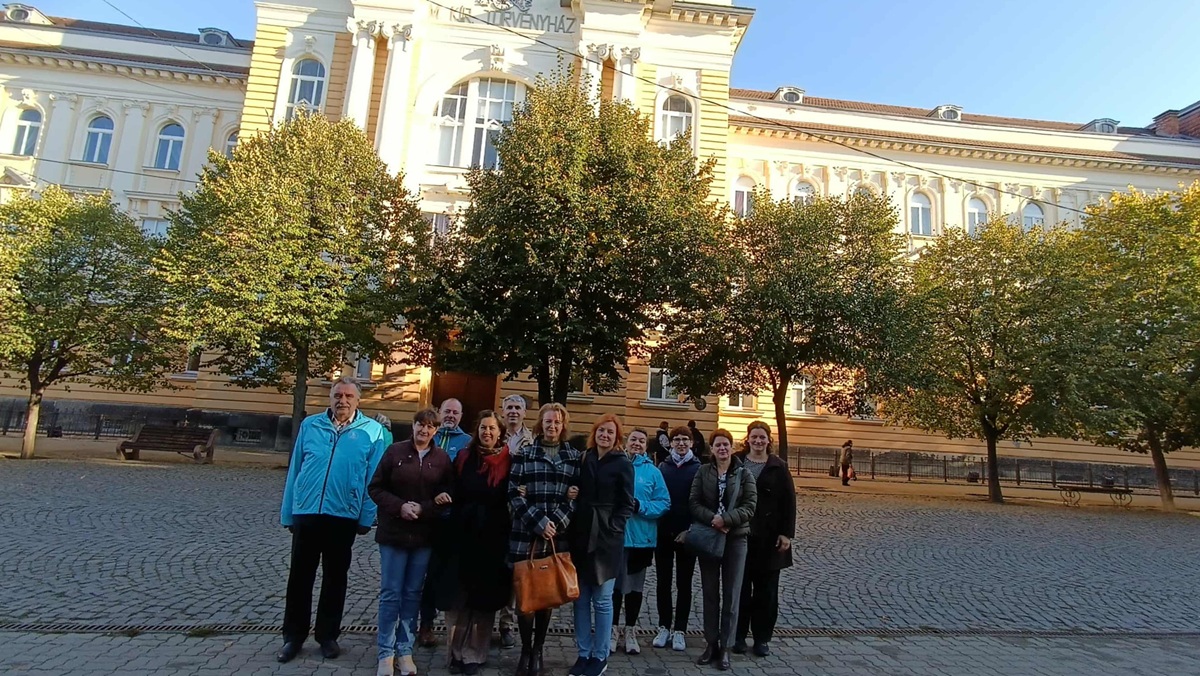Meeting of university partners at the University of Rakoczi
At the initiative of the National Association of Large Families (NOE), the project Supporting inclusive learning environments – strategies for supporting students with families and children in higher education was launched, involving the Károli Gáspár University of the Reformed Church in Hungary, J. Selye University, Sapientia Hungarian University of Transylvania, and the Ferenc Rakoczi II Transcarpathian Hungarian University. The next partner meeting of the project took place at the University of Rakoczi on October 6–7.
On October 6, participants were welcomed by László Szilágyi, Associate Professor of the English Branch of the Department of Philology. He was followed by Ferenc Molnár, Deputy Head of the Department of History and Social Sciences and Director of the Ferenc Kölcsey Special College, as students of the Special College also attended the event.
After the greetings, Örs Levente Kovács, project coordinator of NOE, presented the background of the cooperation.
“Two years ago, within the framework of an Erasmus+ project, NOE received funding to examine the situation of students with families in higher education. This is a European project, and accordingly, through international cooperation we are studying the general trends affecting students who raise children while pursuing their studies,”
he emphasised.
He was followed by Éva Sztáray Kézdy and Zsófia Drjenovszky, Associate Professors at the Károli Gáspár University of the Reformed Church in Hungary, who presented the research conducted at their institution. They highlighted that they assessed the situation through focus group discussions and gained a better understanding of the needs of students with families.
Ágnes-Rózsa Sántha, Associate Professor, and Emese-Emőke Tóth-Batizán, Senior Lecturer from the Sapientia Hungarian University of Transylvania, presented their research results, emphasising that their institution does not offer correspondence programmes, and their students belong to a younger age group. However, the role of the family is strongly present in their future plans; stable relationships, marriage, and the prospect of having three or more children are common goals.
Rita Hegedűs, Associate Professor at J. Selye University, examined the situation of young mothers and middle-aged women with families, concluding that the main challenges faced by students with children include finding childcare during classes and managing their academic absences when their child is ill.
Kornélia Hires-László, Head of the Antal Hodinka Linguistic Research Centre at the University of Rakoczi, conducted research among family students enrolled in Master’s programmes. She highlighted that in Transcarpathia, a more conservative generation lives that preserves family values, and young mothers do not have to choose between motherhood and education, as they can always rely on the help of their parents. Finally, she concluded that the Russian–Ukrainian war has disrupted traditional family models and separated families, which makes everyday life increasingly difficult.
Following the presentation of the projects, the participants discussed the professional questions that arose among the partners.
On October 7, the participants took part in a guided tour, during which they visited the facilities of our institution and the main sights of Beregszász.
Anita Kurmay
-
This article is also available in
Українська
Magyar

